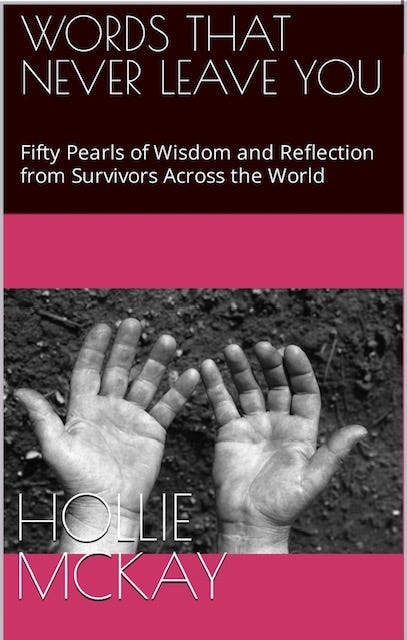A different perspective: why you might not want to join the push to shut down sweatshops
What the media and activists aren't telling you
In the global chatter surrounding sweatshops, the prevailing sentiment often advocates for their immediate closure, decrying the harsh working conditions and meager wages as boycotts emerge and petitions circulate on social media. While it is crucial to address these concerns, a nuanced take points out that shutting down sweatshops may not always be the most compassionate or pragmatic solution. In many instances, these factories serve as a lifeline for vulnerable populations, especially women who find themselves trapped in abusive domestic situations.
Of course, it is essential to acknowledge the harsh realities of sweatshops, where long hours, low pay, and poor working conditions persist. However, for numerous women, these painstaking environments offer a chance to escape the often more oppressive confines of their homes. Domestic abuse remains a pervasive issue worldwide, with many women enduring violence and exploitation within the supposedly safe haven of their households. For these women, the opportunity to work in a sweatshop can serve as a means of liberation, providing financial independence and a chance to break free from the cycle of abuse. By shuttering their only escape, you are forcing a woman back into the obscurity of abuse all day, every day.
Moreover, the small income earned in sweatshops may seem meager by Western standards, but it can be transformative for women in impoverished regions. In societies where patriarchal norms prevail, financial dependence on male family members often restricts women’s autonomy. The minute wages from sweatshop labor may be modest in absolute terms. Still, they foster a sense of economic independence, allowing women to make decisions about their lives that were previously beyond their reach. This small amount of money earned is an opportunity to contribute and be viewed as more than a “burden” on the home front.

Sure, critics also argue that shutting down sweatshops is necessary to force corporations to adopt fair labor practices. While the intention is commendable, the unintended consequences of abrupt closures can exacerbate the challenges faced by these women. Unemployment often awaits those displaced, forcing them back into the confines of their homes or pushing them into even more precarious and exploitative work environments.
Additionally, the presence of sweatshops in economically struggling regions can act as a catalyst for broader societal change. These establishments can fuel the development of local economies, leading to increased educational opportunities, improved healthcare, and infrastructure. These advancements can empower women by providing access to education and healthcare, laying the foundation for long-term societal transformation.
Rather than advocating for the blanket closure of sweatshops, a more practical approach involves pushing for ethical and responsible business practices within these establishments. Demanding fair wages, safe working conditions, and proper legal protections for workers can create an environment where women can earn a livelihood without compromising their dignity. International pressure on corporations and collaboration between governments, NGOs, and businesses can bring about systemic change.
Furthermore, fostering alternative employment opportunities is crucial to providing women with viable choices beyond sweatshop labor. Initiatives that support entrepreneurship, vocational training, and skill development can equip women with the tools needed to pursue alternative avenues for economic empowerment. By investing in diverse economic opportunities, we can offer women a range of choices and ensure that they are not forced into exploitative situations.
All in all, the issue of sweatshops is undoubtedly complex, with ethical and moral considerations at every turn. While the harsh working conditions and low wages are undeniable problems, it is essential to recognize that for many women, sweatshops offer an escape from domestic abuse and a pathway to economic independence. Rather than advocating for wholesale closures, the focus should shift toward improving conditions within these establishments and fostering alternative, empowering opportunities.
We can strike a balance between addressing immediate concerns and creating sustainable, positive change for the vulnerable women caught in the crossfire of globalization. But first, think before you sign that petition or join that boycott and eliminate this opportunity altogether.
PLEASE CONSIDER A PAID SUBSCRIPTION TO THIS SUBSTACK TO HELP KEEP INDEPENDENT, AGENDA-FREE WRITING AND JOURNALISM ALIVE. THANK YOU SO MUCH FOR YOUR SUPPORT.
For speaking queries please contact meta@metaspeakers.org
For ghostwriting, personalized mentoring or other writing/work-related queries please contact hollie@holliemckay.com
Follow me on Instagram and Twitter for more updates
Pre-Order The Dictator’s Wife (out June 10)
Click Here for Pre-Order from my publisher DAP Publications (please support small business!)
Click Here for Pre-Order from Barnes & Noble
Click Here for Pre-Order from Amazon
Click Here for Pre-Order from Target
HOLLIE’S OTHER BOOKS (please leave a review)
** Short read of meaningful lessons gleaned from the ordinary forced to become extraordinary
Order your copy of “Afghanistan: The End of the US Footprint and the Rise of the Taliban Rule” due out this fall.
For those interested in learning more about the aftermath of war, please pick up a copy of my book “Only Cry for the Living: Memos from Inside the ISIS Battlefield.”
If you want to support small businesses:
And also now available in Australia






I love this article. Like you said, the problem is nuanced and few will take the time or effort to explain. This is the kind of news coverage we need.